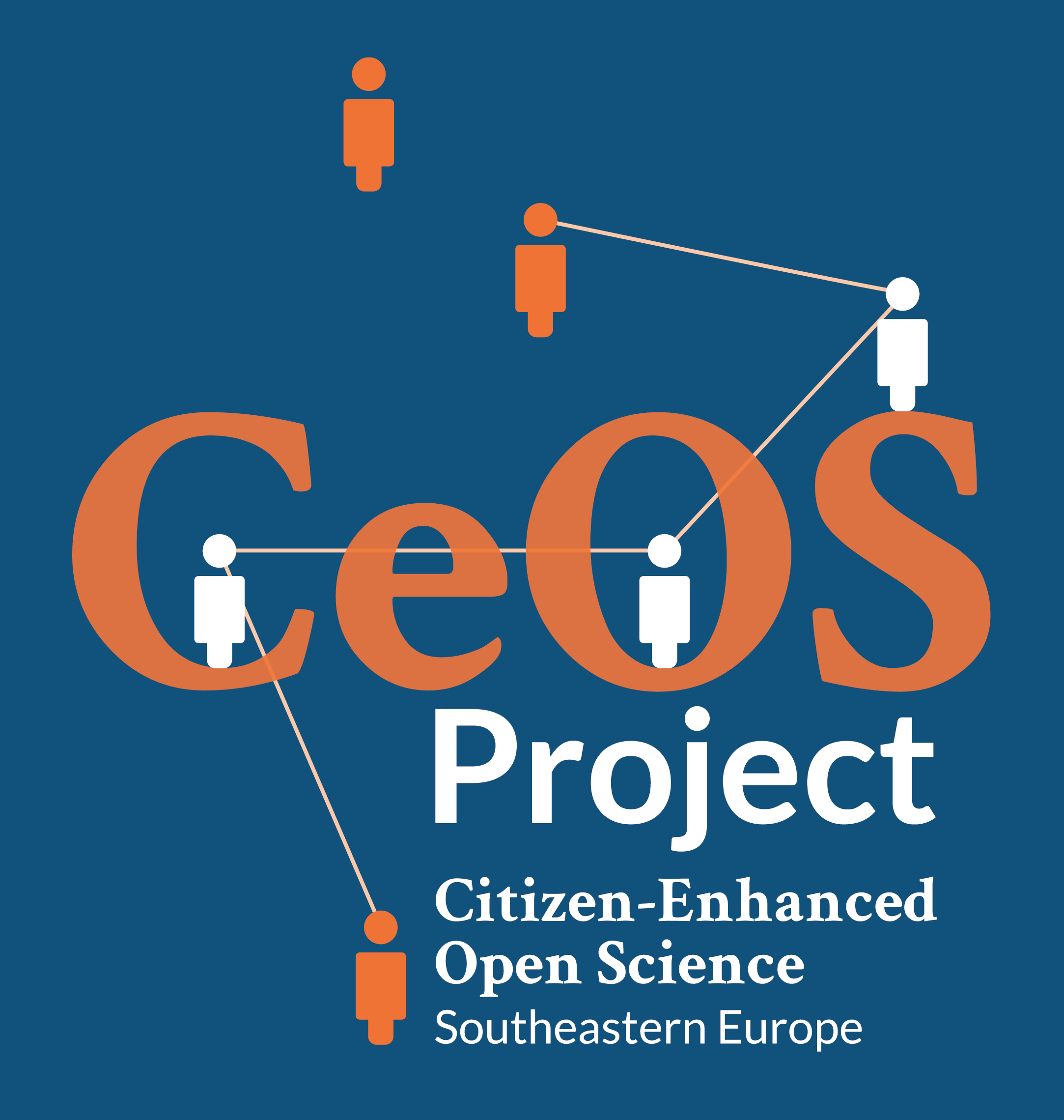The CeOS_SE project aims to mainstream citizen-engaged Open Science in South-eastern Europe. It will do so by collating and sharing best practices for citizen engagement in scientific research, and raising awareness of its benefits in areas in which Citizen Science is less practised. This blog will share three great initiatives from Serbia, one of the countries represented in the CeOS_SE consortium.
Citizens in Action! Asian resin bee in Serbia
A Citizen Science Project of the Center for Bee Biology, Faculty of Biology, University of Belgrade -the ‘Citizens in Action! – Asian resin bee in Serbia’ project got underway in 2022. Many citizens sent photos of individuals of the Asian resin bee observed in Serbia and throughout the region, which gave the researchers information about repeated findings, behaviour on nests and plants visited by this bee. The Center for Biology of Bees emphasized the importance of the participation of all citizens, even those who did not encounter a bee this year – many sent pictures, data, or questions about other bees, wasps, or similar insects and informed about the locations of plants where resin bees could be seen, which were also data of great importance. After processing the collected data, the results will be published in public announcements, overview reports and in scientific papers and other renowned publications. Read more about this project (in English) here.
Obtectus Finders
The main goal of the CS project Obtectus Finders is to analyze the genetic variability of natural populations of seed beetles, which have the scientific name Acanthoscelides obtectus. Additionally, results of this project will contribute to the development of new biocontrol techniques, which will improve the field of agriculture. To accomplish this aim, researchers want to connect with citizens in order to collect beetles from a large number of different locations. The involvement of volunteers in collecting beetles will help uncover the distribution of this pest insect at broad geographic scales and understand the genetic structure of their population. The team of the project is composed of young experts employed at the Institute for Biological Research “Siniša Stanković” and the Faculty of Biology, University of Belgrade. Citizens who spot weevils among unsprayed beans from the garden or the market should contact the researchers involved in the project to arrange the collection of the infected beans and the weevils in them. On the map located on the website (www.opasuljise.rs), experts will enter the locations from which the infected beans were collected and carry out a genetic analysis of the population of weevils from those locations. This information is necessary for a better understanding of the biodiversity of this harmful species, as well as for the development of a new biocontrol method called the “Trojan female technique”. All those interested in participating in the project will be sent the necessary material (an envelope containing a plastic tube with 1 ml of 96% alcohol and promotional material). Read more (in English) here.
Further Citizen Science opportunities in Serbia
Another interesting way for young people to join in with Citizen Science in Serbia is to make a note on the SpringAlive website whenever they notice one of the birds that are the focus of this program: the white stork, barn swallow, black grebe, common cuckoo, bee-eater or marsh warbler. This will help track the migration of birds across the planet. Also, there is the possibility of using the NaturaList application for mobile phones to record and save data on observed biological species. Each entered species is automatically followed by the geographical coordinates of the place where it was observed. Such precise databases can later be useful in nature studies and conservation projects, such as this one.
CeOS_SE will continue to pilot citizen-enhanced Open Science across Southeastern Europe. Follow the project on our social media channels and website for more.











